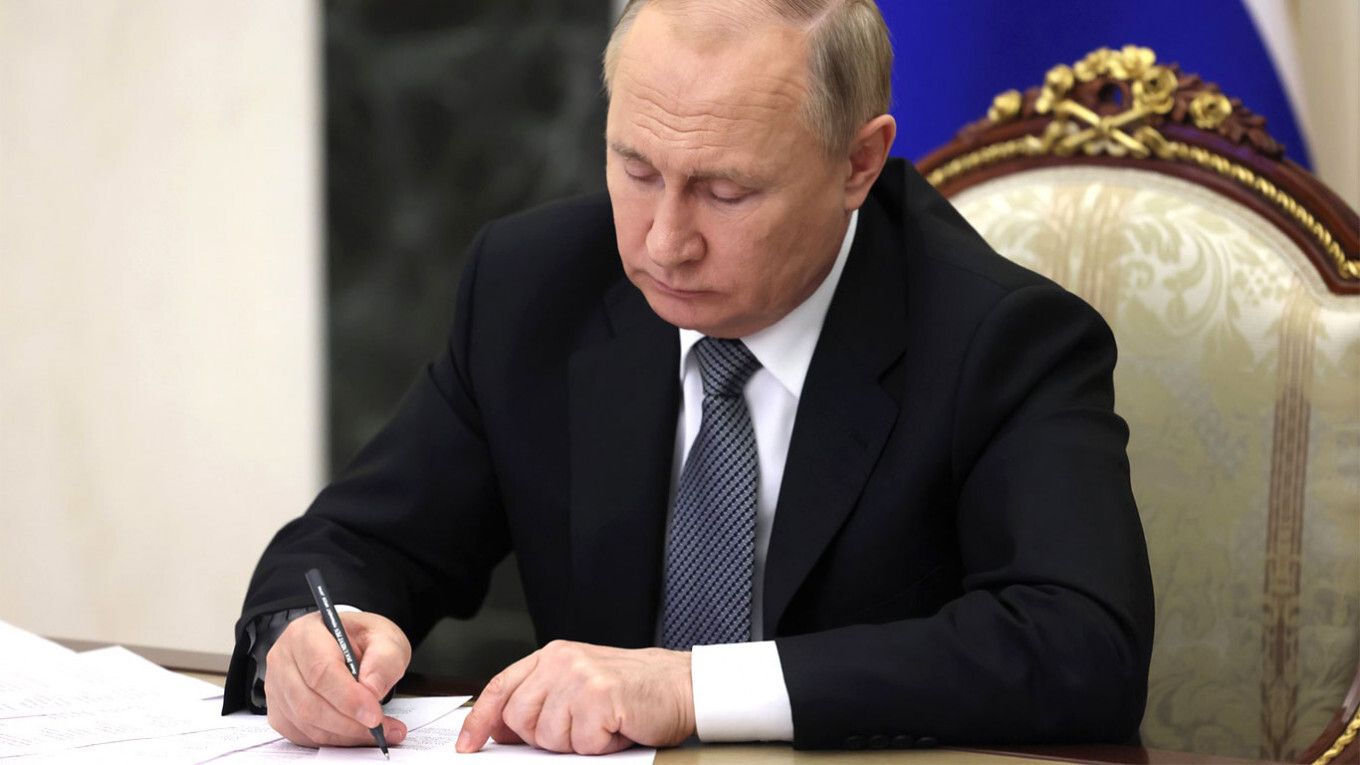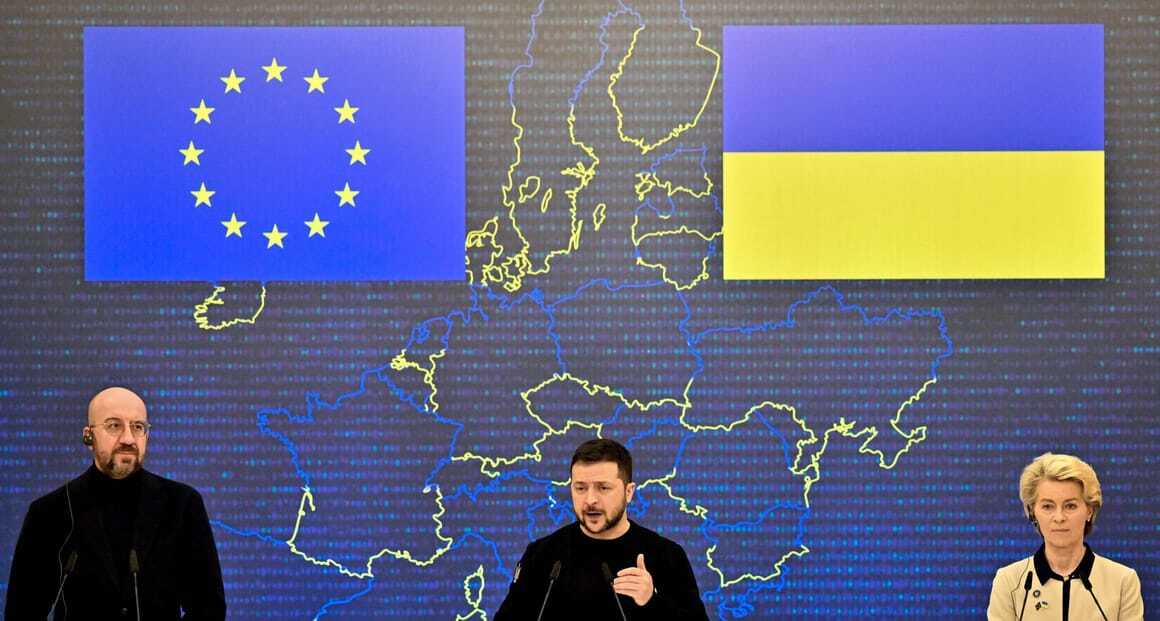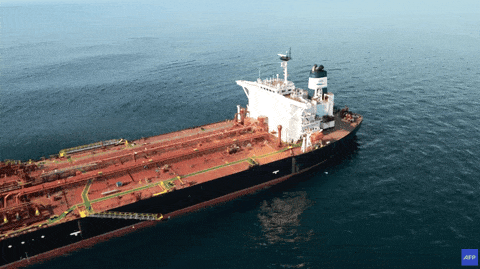
🌐 WORLD
Fast Scroll News
🇩🇪 Germany Arrests Hamas Suspects

German police just detained three men in Berlin accused of working for Hamas and preparing armed attacks against Jewish and Israeli targets inside the country.
Names: The suspects are…
Abed Al G., a 36-year-old German citizen of Lebanese descent
Wael F. M., a 43-year-old man born in Lebanon with unclear nationality
Ahmad I., a 44-year-old German national originally from Syria
Weapons: Officers seized an AK-47 assault rifle, several pistols, and large amounts of ammunition during the arrests.
Operation: The men were caught during a police sting on a weapons handover, with searches also carried out in Leipzig and Oberhausen.
Charges: Prosecutors accuse them of being Hamas operatives tasked with acquiring firearms in Germany for attacks, and of preparing serious acts of violence endangering the state.
Next Step: They will appear before the Federal Court of Justice, which will decide whether to issue formal arrest warrants and place them in pre-trial detention.
🇩🇪 Munich Police Shut Oktoberfest

In another German news, German police abruptly closed the Oktoberfest fairgrounds on October 1 after a bomb threat tied to a deadly explosion in northern Munich.
Suspect: Authorities identified a 57-year-old German man who died by suicide near a lake in northern Munich.
Device: Police said he carried a backpack with an explosive device and left a letter containing a vague threat against Oktoberfest.
Casualties: His 90-year-old father was found dead, while his 81-year-old mother and 21-year-old daughter were injured and hospitalized.
Sweep: More than 500 officers, sniffer dogs, and detection tools combed the festival grounds before declaring the threat unconfirmed.
History: The festival, which draws up to 6 million visitors, still carries scars from a 1980 neo-Nazi bombing that killed 13 people.
🇫🇷 France Boards Russian Tanker
French soldiers boarded the oil tanker Boracay off Saint Nazaire, suspecting it belonged to Russia’s shadow fleet that dodges sanctions.
Action: Troops in fatigues and balaclavas have patrolled the deck since Saturday, according to AFP and BFM footage.
Probe: The Brest prosecutor opened an investigation after the crew failed to prove the ship’s nationality and ignored orders.
Sanctions: Boracay is already listed under British and EU sanctions for ties to Russian oil exports.
Route: Ship data shows it left Primorsk on September 20, sailed through the Baltic and North Seas, and was shadowed by a French warship before diverting toward the French coast.
Scale: Macron told EU leaders in Copenhagen that Russia’s shadow fleet may include 600 to 1,000 aging tankers with murky ownership and insurance.
📌 Context: Since 2022, Russia has relied on a shadow fleet of older tankers to move oil outside Western oversight, often sailing under false flags or none at all to skirt sanctions.
🇮🇱 Israel Stops Gaza Flotilla
Israel intercepted several boats late Wednesday night as they tried to deliver humanitarian aid to Gaza, with Swedish activist Greta Thunberg among the passengers.
Operation: Israeli naval forces boarded the Global Sumud Flotilla in international waters and redirected the vessels to an Israeli port.
Passengers: The group included Thunberg, Brazilian activist Thiago Ávila, and lawmakers from Italy, all livestreaming their journey across the Mediterranean.
Response: Organizers accused Israel of an "illegal attack on unarmed humanitarians," while Israel dismissed the mission as a public relations stunt.
Diplomacy: Greece and Italy urged the flotilla to hand over supplies to the Latin Patriarchate of Jerusalem instead, warning the mission could undermine a new US peace plan.
📌 Context: Israel has enforced a maritime blockade on Gaza since 2007, tightening restrictions after the Hamas-led attack on October 7, 2023.
🇶🇦 Trump Vows Defense

Donald Trump just signed an executive order pledging that the US will defend Qatar, even with military force if necessary, after Israel struck a Hamas-linked compound in Doha on September 10.
Order: The text, dated Monday but posted Wednesday, declares that any attack on Qatar’s territory, sovereignty, or critical infrastructure will be treated as a threat to US security.
Trigger: The move followed an Israeli airstrike that killed six people, including a Qatari security officer, as Hamas leaders debated a ceasefire with Israel.
Reaction: There are many pro-Israel Trump supporters online who are expressing their bafflement and anger over this vow, accusing Trump of protecting a terror-supporting state.
Uncertainty: The order is not a Senate-approved treaty, so its binding force is unclear, echoing Trump’s earlier ambiguous commitments to NATO.
Backdrop: Qatar hosts the US Central Command’s forward base at Al Udeid Air Base and was named a major non-NATO ally in 2022 for its role in the Afghanistan withdrawal.
📌 Context: Qatar’s wealth from natural gas and its strategic Gulf location make it central to US security policy, while Israel’s strike and Saudi Arabia’s new defense pact with Pakistan have heightened regional anxieties.

🇷🇺 RUSSIA
Putin Threatens Retaliation
Europe is weighing a $165 billion loan to Ukraine backed by frozen Russian reserves, and Moscow just signaled it will retaliate by seizing Western assets inside Russia if Brussels moves ahead.
📌 Context: Western nations froze Russian central bank reserves after the 2022 invasion of Ukraine. With US aid shrinking under President Trump, Europe is exploring new financial tools to sustain Kyiv’s war effort, even as Russia threatens to escalate by targeting foreign companies still operating inside its borders.
Europe’s Big Loan Idea

The European Union is trying to fill the gap left by dwindling US aid under Trump. The plan is to use Russian money without technically seizing it.
On October 1, 2025, EU leaders met to discuss issuing a €140 billion ($165 billion) interest-free "reparations loan" to Ukraine.
The loan would be repaid only if Russia compensates Ukraine for war damage, making it a high-stakes financial bet.
Ursula von der Leyen, President of the European Commission, said the loan would be disbursed in tranches and stressed that it would not involve the direct seizure of Russian assets.
📌 Context: Approximately $300 billion of Russian sovereign assets have been frozen in the West since the 2022 invasion, with the majority held in the EU and the UK.
Moscow’s Countermove

So how is Russia responding? By threatening to flip the script and target Western companies still operating in its territory.
On September 30, 2025, Vladimir Putin signed a decree allowing Russia to accelerate the valuation and sale of Western assets through PSB, a state-controlled bank tied to the military sector.
Finance Minister Anton Siluanov claimed Russia has frozen an equal amount of Western assets and would respond "symmetrically."
Since the war began, Moscow has already seized operations of firms like Carlsberg, the Danish brewer, and redirected profits into frozen state-controlled accounts.
The Legal and Political Edge

Russia’s Foreign Ministry spokeswoman, Maria Zakharova
The Kremlin is framing Europe’s "financial engineering" as theft, while European leaders argue it is a workaround.
Maria Zakharova, Russia’s Foreign Ministry spokeswoman, warned on September 12 that Moscow would "respond harshly" to any attempt to deprive Russia of its sovereign assets.
Dmitri Medvedev, deputy chair of Russia’s security council, said on September 15 that Russia would pursue EU states "until the end of time" and "by every means possible," including courts and extrajudicial measures.
Putin himself warned in September that such moves would "completely destroy all principles of international economic and financial activity."
Why This Matters Now

The timing is not random. Europe is recalibrating its Ukraine strategy as the US pulls back, and leaders are split on the risks.
German Chancellor Friedrich Merz backed the loan last week, facing pressure from far-right critics at home who oppose taxpayer spending on Ukraine.
Belgium’s Prime Minister, whose country hosts most of the frozen Russian assets, opposed the plan, citing disproportionate risk.
Britain is considering a parallel scheme, signaling this could become a broader Western front.
📌 Context: The G7 already issued a smaller loan to Ukraine using interest from frozen Russian assets as collateral, but this new EU plan is far larger and more politically explosive.



